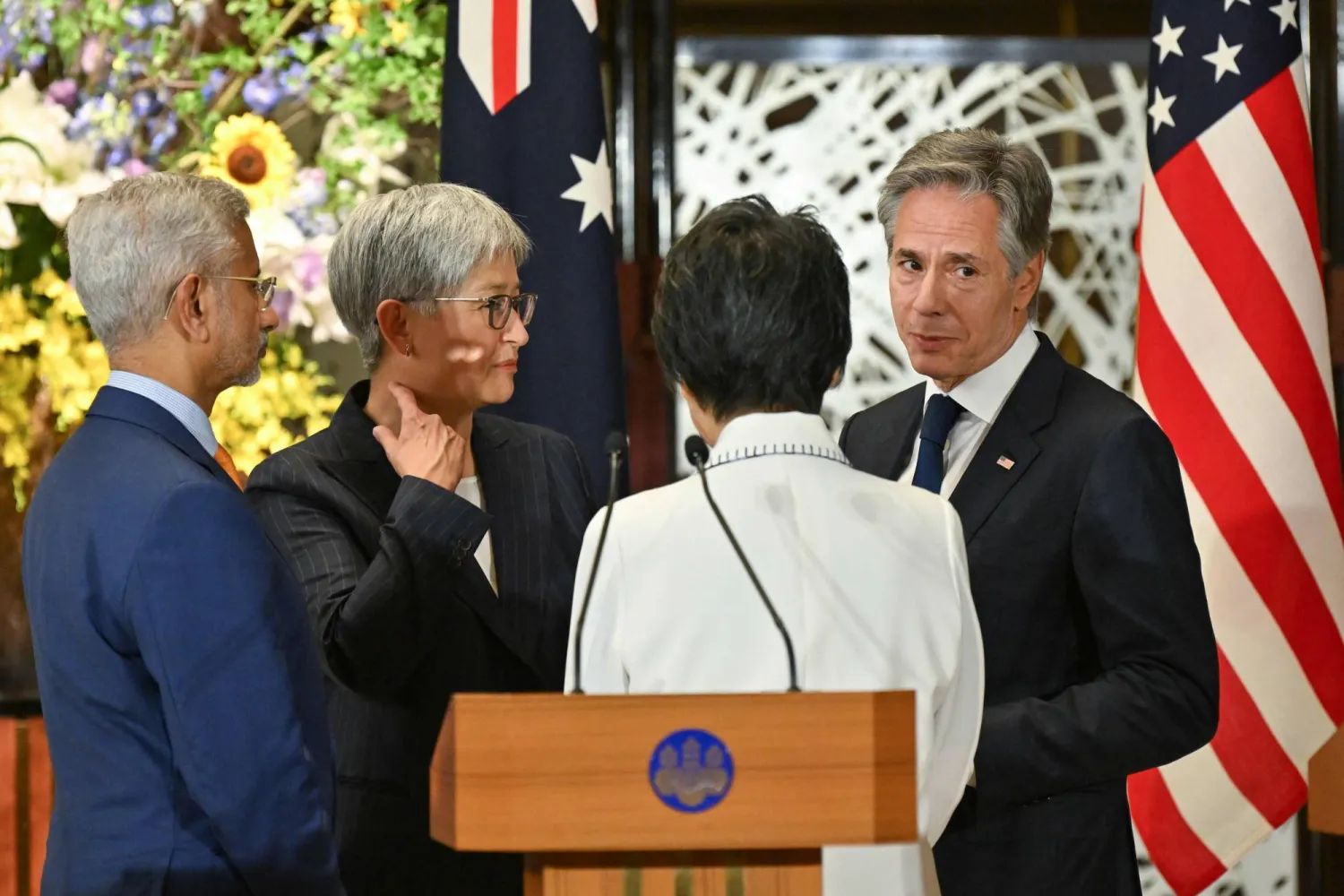Foreign ministers from Australia, India, Japan and the United States - a grouping known as the 'Quad' - discussed initiatives to bolster maritime security and build up cyber defenses in talks in Tokyo on Monday.
The talks attended by Australia's Penny Wong, India's Subrahmanyam Jaishankar, Japan's Yoko Kamikawa and Antony Blinken from the US, follow security discussions between Tokyo and Washington on Sunday where the allies labelled China the "greatest strategic challenge" facing the region, Reuters reported.
"We are charting a course for a more secure and open Indo-Pacific and Indian Ocean region by bolstering maritime security and domain awareness," Blinken said in remarks to the press after the meeting.
"It means strengthening the capacity of partners across the region to know what's happening in their own waters," he added.
He said the US would continue to work with its allies to ensure freedom of navigation and the unimpeded flow of lawful maritime commerce.
The US announced plans on Sunday for a major revamp of its military command in Japan to deepen coordination with its ally's forces.
It was among several measures taken to address what the US and Japan said was an "evolving security environment,” noting various threats from China including its increasingly muscular maritime activities in the East and South China Seas.
"Uncertainty surrounding the international order as well as the international situation has been increasing with Russia continuing its aggression in Ukraine, attempts to unilaterally change the status quo by force in the East China Sea and South China Sea, and the launch of ballistic missiles by North Korea," Japan's Kamikawa said after the talks.
She highlighted the need to build up cybersecurity capability and provide training opportunities in maritime security to protect and develop prosperity in Indo-Pacific.
After leaving Tokyo, Blinken and Austin will hold security talks with another Asian ally, the Philippines, as the Biden administration seeks to counter an increasingly bold China.
Blinken met his Chinese counterpart Wang Yi in Laos on Saturday and repeated that Washington and its partners want to maintain a "free and open Indo-Pacific," according to a US readout of the meeting.









